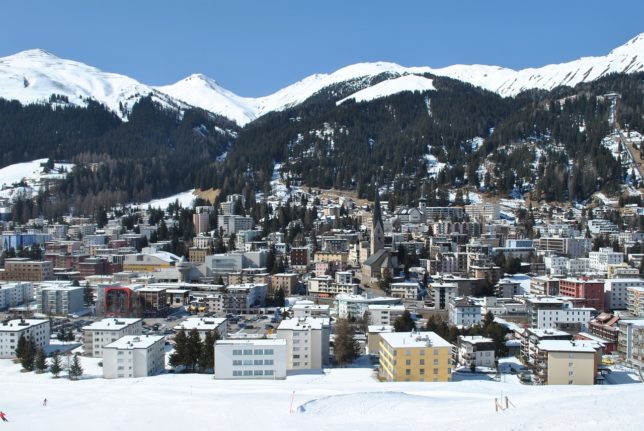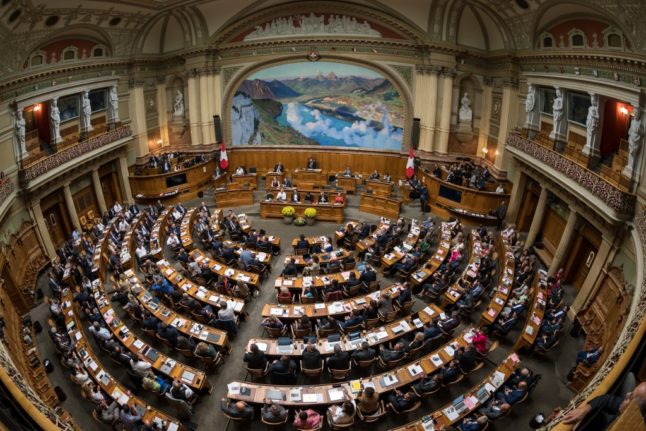The 20minuten newspaper published a picture of a sign put up at the posh Pischa station above Davos, the resort known for hosting the annual World Economic Forum gathering of the globe’s business and political elites.
The sign, in Hebrew, said that due to various troubling incidents, “including the theft of a sled, we no longer rent sports equipment to our Jewish brothers”.
20minuten said the station had told them in a written statement that they “no longer want the daily hassle” of Jewish guests leaving sledges on the slopes, or equipment not being returned, or “returned defective”.
In a video published by Blick newspaper, Ruedi Pfiffner, the manager of the Pischa hotel-restaurant said: “The notice was certainly worded incorrectly, and I apologise for that.”
He said that Jewish guests “are still welcome. I’m ready to talk to those affected”.
The Graubunden cantonal police force said it had begun an investigation into “discrimination and incitement to hatred,” having received a report from an individual. “Further details are the subject of ongoing investigations,” it told AFP.
‘Open and undisguised’ discrimination
The Swiss Federation of Jewish Communities said it was launching legal action.
“The poster is undisputedly discriminatory,” its general secretary Jonathan Kreutner said in a statement sent to AFP.
“An entire group of guests is being collectively labelled because of their appearance and origin. Completely open and undisguised.
We will be taking legal action and will be filing a charge for violation of the anti-racism norm.”
Kreutner also claimed that in Davos, “just last summer, the local tourism organisation put its cooperation with us and our dialogue project on ice. It is obvious that there is a lot going wrong here.”
The Zurich-based Foundation against Racism and Anti-Semitism (GRA) noted that this was not the first time tensions had arisen in Davos between locals and tourists, “some of whom are Orthodox Jews”.
In a statement sent to AFP it called the Pischa ski station’s actions “serious anti-Semitic discrimination”.
The Davoser Zeitung newspaper said in August that between 3,000 and 4,000 Orthodox Jewish people took holidays in the resort in summer 2023, noting then that there was “increasing criticism of the behaviour of these tourists”.
Back in 2017, an apartment hotel in the neighbouring village of Arosa posted signs telling Jewish clients to shower before using the pool, triggering outrage and official complaints from Israel.
The hotel was reportedly very popular with ultra-Orthodox Jewish guests because it had been accommodating to their needs, including access to a freezer to store kosher food.



 Please whitelist us to continue reading.
Please whitelist us to continue reading.
Member comments